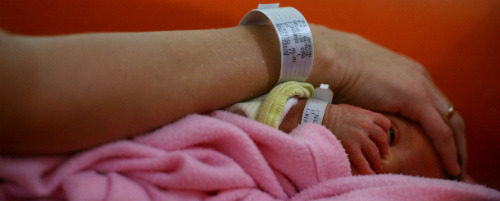An anti-aging drug, sold over the counter worldwide, has been found to dramatically improve pregnancy rates among women undergoing treatments for infertility, according to new Israeli research.

An anti-aging vitamin supplement already sold in drugstores could triple a women’s chance of getting pregnant, and help her carry the baby to term, according to a new report by Israeli researchers.
Scientists from the Meir Medical Center and Tel Aviv University (TAU) found a statistical connection between the over-the-counter vitamin supplement, DHEA, and successful pregnancy rates in women undergoing treatment for infertility. In the US alone, some six million women a year suffer from infertility, according to the American Pregnancy Association.
In the first controlled study on the effects of the supplement, Prof. Adrian Shulman, the director of the IVF Unit of the Obstetric and Gynecology Department at Meir Medical Center, and a professor at TAU’s Faculty of Medicine, found that women being treated for infertility who also received supplements of DHEA were three times more likely to conceive than women who did not receive the supplement.
Shulman decided to test the efficacy of DHEA, a naturally occurring steroid found in the brain which is used worldwide to treat the effects of aging, after hearing anecdotal evidence from his patients and the medical community on the benefits of using the supplement during fertility treatments.
Improving your chances
He and his fellow researchers conducted a study in which a control group of women received treatment for poor ovulation, and another group received the same treatment with the addition of the DHEA supplement. The latter group, of around 20 women, took 75mg of the supplement daily for 40 days before starting fertility treatments, and continued for up to five months.
Not only were women who combined infertility treatment with DHEA more likely to conceive, the researchers discovered, they were also more likely to experience a healthy pregnancy and delivery. “In the DHEA group, there was a 23% live birth rate as opposed to a 4% rate in the control group,” explains Shulman, who recently published the results of the study in AYALA, the journal of the Israeli Fertility Association. “More than that, of the pregnancies in the DHEA group, all but one ended in healthy deliveries.”
Shulman recommends that women who are unable to conceive with current fertility treatments could look to DHEA to improve their chances. “We recommend that women try this DHEA treatment, in conjunction with fertility treatments, for four to five months,” says Shulman.
He also believes it could also be used as a regular “vitamin” for women who have already conceived and are pregnant, but adds that more research would need to be done on the compound to determine its effects.
Understanding the mechanism
DHEA, for 5-Dehydroepiandrosterone (5-DHEA), plays an important biological role in humans and other mammals. Produced in the adrenal glands, it is also synthesized in the brain. The pharmaceutical version of this molecule is known as Prastera, Prasterone, Fidelin and Fluasterone, and identical generics are widely available over the counter in the United States without a prescription.
Women interested in using DHEA to conceive, however, should consult their practitioner first, suggests Shulman. He hopes that further research will provide more information about why the supplement helps women with an otherwise poor response to fertility treatments, to conceive successfully.
“We need to look into what the drug actually does to make the body more fertile,” he explains. “It could be affecting components such as the quality of the eggs or the follicles.”












